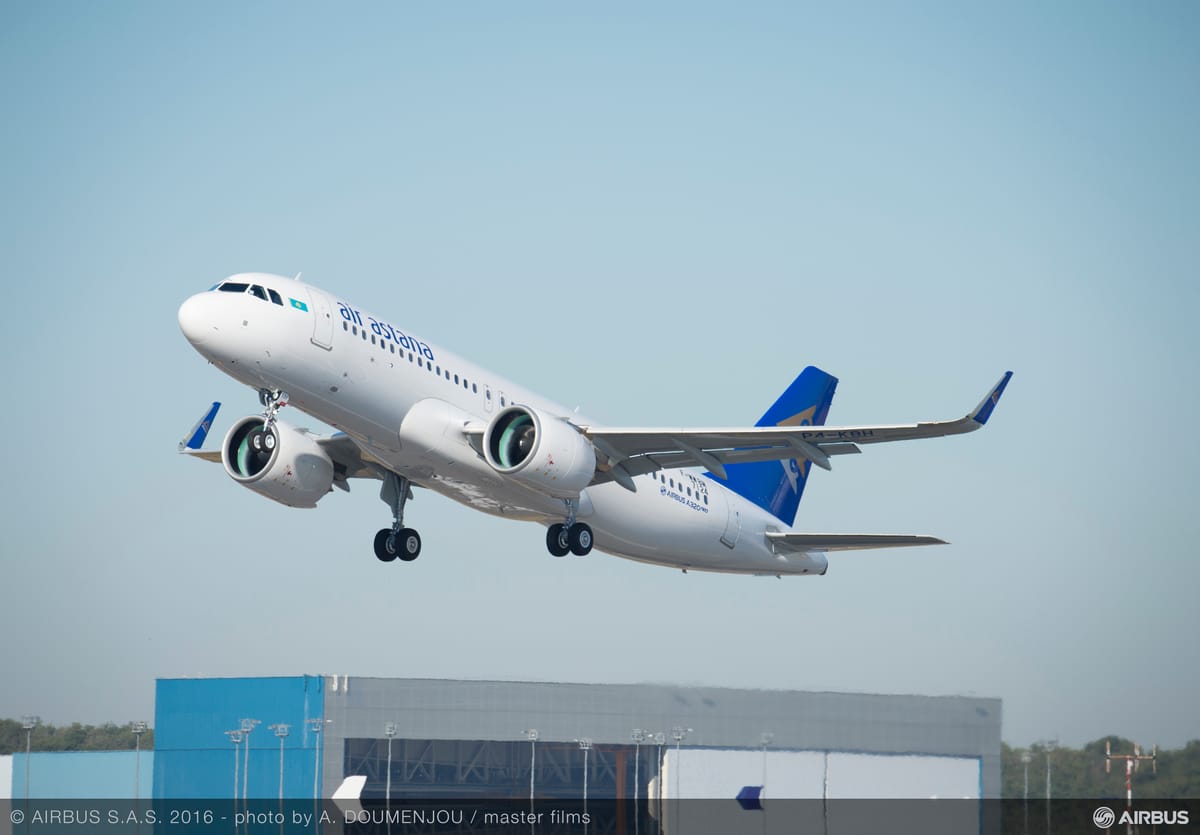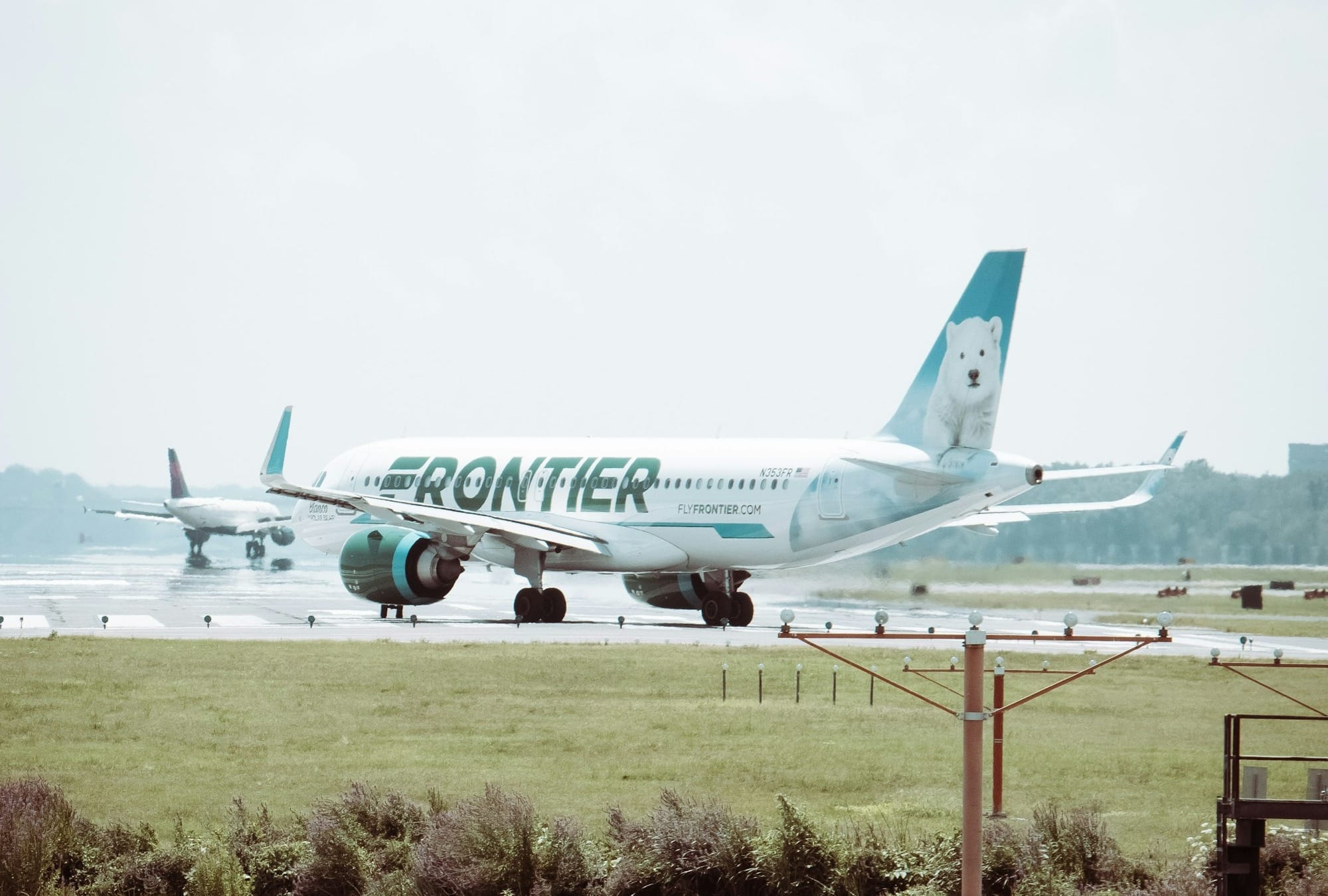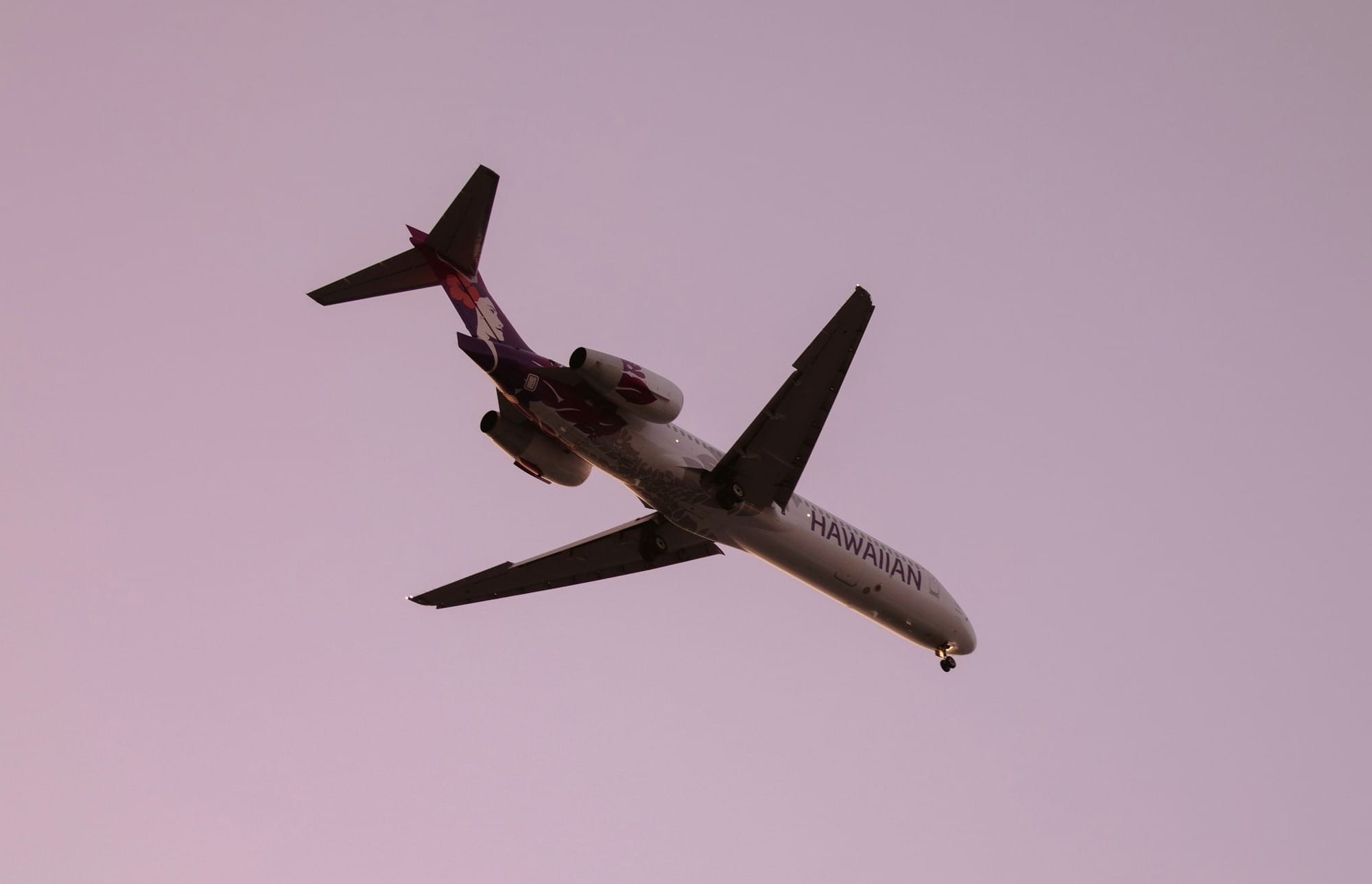Air Astana Takes Delivery of New Airbus A320neo
Air Astana, Kazakhstan's national carrier, has taken delivery of a new Airbus A320neo, marking a significant milestone in the airline's fleet modernization efforts.

Air Astana Takes Delivery of New Airbus A320neo
Key Takeaways:
- Air Astana receives its 47th Airbus aircraft, an A320neo.
- The new aircraft enhances fuel efficiency and passenger comfort.
- This delivery is part of Air Astana's broader fleet modernization strategy.
Fleet Expansion and Modernization
Air Astana, Kazakhstan's national carrier, has taken delivery of a new Airbus A320neo, marking a significant milestone in the airline's fleet modernization efforts. The aircraft arrived at Astana International Airport on June 29, 2024, becoming the 47th Airbus aircraft in Air Astana's fleet.
The delivery of this A320neo is part of Air Astana's ongoing strategy to enhance its fleet with more fuel-efficient and environmentally friendly aircraft. The A320neo (new engine option) is known for its improved fuel efficiency, reduced emissions, and enhanced passenger comfort compared to its predecessor, the A320ceo (current engine option).
Technical Specifications and Advantages
The Airbus A320neo boasts several improvements over its predecessors:
- Fuel Efficiency: The neo variant offers up to 20% fuel savings per seat compared to previous generation aircraft, which translates to significant cost reductions for airlines and lower environmental impact.
- Reduced Emissions: With improved fuel efficiency comes a reduction in CO2 emissions, aligning with global efforts to mitigate the aviation industry's environmental footprint.
- Extended Range: The A320neo has an increased range compared to the ceo version, allowing airlines to operate longer routes and potentially open new markets.
- Passenger Comfort: The aircraft features a quieter cabin, larger overhead bins, and the latest in-flight entertainment systems, enhancing the overall passenger experience.
While specific details about the engine choice for this particular A320neo were not provided, it's worth noting that Air Astana has previously taken delivery of A320neos powered by Pratt & Whitney engines. The engine selection plays a crucial role in the aircraft's performance and efficiency.
Air Astana's Fleet Strategy
The delivery of this A320neo is not an isolated event but part of a broader fleet modernization strategy. Air Astana has been actively updating its fleet with new Airbus deliveries, including plans to receive additional A320neo aircraft in the near future.
This strategy serves multiple purposes:
- Operational Efficiency: By standardizing its fleet around the Airbus family of aircraft, Air Astana can streamline its operations, reduce maintenance costs, and simplify crew training and scheduling.
- Environmental Responsibility: The adoption of more fuel-efficient aircraft aligns with global aviation industry goals to reduce carbon emissions and minimize environmental impact.
- Market Competitiveness: Modern aircraft with enhanced passenger amenities help Air Astana maintain a competitive edge in both domestic and international markets.
- Network Expansion: The improved range and efficiency of the A320neo could potentially allow Air Astana to explore new routes or increase frequencies on existing ones.
Impact on Air Astana's Operations
The introduction of the new A320neo is expected to have a positive impact on Air Astana's operations in several ways:
- Cost Reduction: The improved fuel efficiency of the A320neo will help the airline reduce its operating costs, particularly in the face of fluctuating fuel prices.
- Capacity Management: The A320neo's seating capacity allows Air Astana to better match supply with demand on various routes, optimizing load factors and revenue.
- Maintenance Efficiency: As part of a younger fleet, the new aircraft will require less frequent maintenance, potentially reducing downtime and associated costs.
- Route Network Optimization: The aircraft's capabilities may enable Air Astana to reassess its route network, potentially leading to the introduction of new destinations or increased frequencies on popular routes.
Air Astana's Market Position
As Kazakhstan's flag carrier, Air Astana plays a crucial role in connecting the country to international destinations and supporting domestic air travel. The airline's investment in modern aircraft like the A320neo reinforces its position as a leading carrier in Central Asia.
The delivery of the new A320neo coincides with Air Astana's plans to increase flights to China. This strategic move suggests that the airline is leveraging its fleet modernization to expand its presence in key markets and capitalize on growing travel demand in the region.
Industry Context
Air Astana's fleet expansion with the A320neo reflects broader trends in the aviation industry:
- Sustainability Focus: Airlines worldwide are prioritizing fuel-efficient aircraft to reduce their carbon footprint and comply with increasingly stringent environmental regulations.
- Post-Pandemic Recovery: The delivery of new aircraft signals confidence in the recovery of air travel demand following the global pandemic slowdown.
- Technological Advancements: The A320neo represents the latest in aviation technology, showcasing the industry's continuous efforts to improve performance and efficiency.
Future Outlook
Air Astana's continued investment in its fleet suggests a positive outlook for the airline's future. The delivery of this A320neo, along with planned future deliveries, positions the carrier for sustainable growth in the coming years.
As air travel demand continues to recover and evolve, Air Astana's modern fleet will enable it to adapt to changing market conditions and passenger preferences. The airline's focus on efficiency and passenger comfort aligns well with industry trends and consumer expectations.
Conclusion
The delivery of the new Airbus A320neo to Air Astana marks a significant milestone in the airline's ongoing fleet modernization program. This aircraft, becoming the 47th Airbus in the carrier's fleet, underscores Air Astana's commitment to operational excellence, environmental responsibility, and enhanced passenger experience.
As Air Astana continues to expand and refresh its fleet, it strengthens its position as a leading airline in Central Asia. The A320neo's advanced technology and efficiency will play a crucial role in the airline's strategy to optimize its operations, reduce costs, and explore new market opportunities.
The aviation industry's focus on sustainability and technological advancement is clearly reflected in Air Astana's fleet choices. As the airline moves forward with its modernization efforts, it is well-positioned to meet the evolving demands of air travel in the region and beyond, contributing to Kazakhstan's connectivity and economic development.
With this latest addition to its fleet, Air Astana demonstrates its readiness to face the challenges and opportunities of the post-pandemic aviation landscape, setting a course for sustainable growth and improved service for its passengers.
Q&A Section
Q: What is the significance of Air Astana's new Airbus A320neo delivery? A: The new Airbus A320neo delivery marks a significant milestone in Air Astana's fleet modernization efforts, enhancing fuel efficiency, reducing emissions, and improving passenger comfort.
Q: How does the A320neo compare to its predecessor, the A320ceo? A: The A320neo offers up to 20% fuel savings per seat, reduced CO2 emissions, extended range, and enhanced passenger comfort compared to the A320ceo.
Q: What are the strategic benefits of Air Astana's fleet modernization? A: The fleet modernization strategy enhances operational efficiency, environmental responsibility, market competitiveness, and network expansion.
Q: How will the new A320neo impact Air Astana's operations? A: The A320neo will help reduce operating costs, optimize capacity management, improve maintenance efficiency, and enable route network optimization.
Q: What broader industry trends does Air Astana's fleet expansion reflect? A: Air Astana's fleet expansion reflects trends such as a focus on sustainability, post-pandemic recovery, and technological advancements in the aviation industry.








